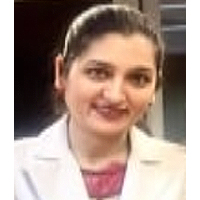Canine Distemper Virus detection based in Hemaglutinine Gene as target in Reverse Transcriptase-Polymerase Chain Reaction
Published on: 27th December, 2018
OCLC Number/Unique Identifier: 7964755439
Canine Distemper have become a major concern within the veterinary clinical work. Thus, the appearance of many cases of canine distemper in adult animals with their vaccination plan up to date has alarmed veterinarians. Many cases of canine distemper have become a major concern within the clinical veterinary task. The purpose of this work was to detect the gene of hemagglutinin of the virus canine distemper, by using the Polymerase Chain Reaction associated with Reverse transcription (RT-PCR), as confirmation of the clinical diagnosis of disease. For this, peripheral blood samples of animals were used clinically patients and were grouped according to their date of extraction and using vaccines commercial as control.
The results allow to demonstrate a high sensitivity of the technique, besides allowing the use of samples up to seven days of storage at 4°C, despite the fragility of RNA viral.
Detection of canine distemper virus haemagglutinin gene in field samples and its high sensitivity, suggests studying its use as a diagnostic tool complementary to the clinical diagnosis of canine distemper in our country.
Use of the Reverse Transcription-Polymerase Chain Reaction for differential detection of two lineages of the canine distemper virus in Chile
Published on: 4th March, 2019
OCLC Number/Unique Identifier: 8056345040
Worldwide, Canine Distemper Virus (CDV) infection is a highly prevalent disease with high morbidity and mortality. CDV causes a multisystemic disease in a wide range of hosts including 9 families of mammals among them some primates, cetaceans and numerous carnivores. It presents a high tropism for lymphoid, neurological and epithelial tissue, leading to an infection of almost all systems, so the clinical signs observed are very varied. The diagnosis is made based on the clinical presentation of the disease, which considers a variety of signs and must be confirmed by a laboratory diagnostic method. The molecular technique called Reverse Transcription Polymerase Chain Reaction (RT-PCR) has been used to characterize viral strains based on the basis of genetic differences on the hemagglutinin (H) gene of CDV has allowed the identification of 14 circulating lineages in the world. Two lineages, namely the America-1 and the Europe-1/South America-1 have been described in Chile. The goal of this work was to implement a multiplex RT-PCR protocol, which was built on the in silico design of primers based on the H gene nucleotide sequences stored in the Genbank® database. This method was capable of detecting the previously described two circulating genetic lineages of CDV in a differential way providing a supporting diagnostic tool for epidemiological studies in the country. These results suggest that the primers described here are extremely selective for the above-mentioned lineages. In addition, our initial screening indicated that most analyzed clinical samples corresponded to the America-1 lineage, stressing the need for a continuous surveillance in order to properly address the prevalence of both lineages in Chile.
















